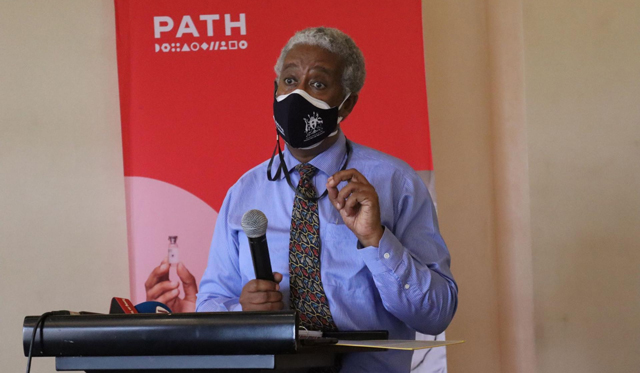
Kampala, Uganda | THE INDEPENDENT | The World Health Organisation has urged the government of Uganda to put in place measures to address adverse side effects of COVID-19 vaccines.
The call follows reports that the Johnson & Johnson COVID-19 vaccine has been found to cause rare blood clots similar to the ones associated with the AstraZeneca COVID-19 vaccine. Scientists in the country believed the Johnson and Johnson vaccine would be a game-changer since only one jab of the vaccine is required to attain maximum protection.
As a result of being associated with blood clots, several European countries have halted the use of the said vaccines. However, in light of the limited supply of the vaccines, the World Health Organisation country representative to Uganda, Dr Yonas Woldermariam has called upon the government not to take the same route.
He says that instead of halting the use of the vaccines, the government needs to put in place measures to handle the clots since the country cannot afford to halt vaccination.
Speaking at the sidelines of celebrations to commemorate World Health Day, which was marked in Uganda on Thursday, April 15, Dr Woldermariam said that the benefits of vaccination still outweigh its risks, and, because of this, the government needs to come up with a plan to manage the conditions.
“Every product whether vaccines or medicines have a certain level of risk. Our lifestyles have risk. The issue is knowing the risk and managing it because the benefits outweigh the risks. Uganda needs a good surveillance system to see who develops the side effects and intervene and treat them,” Dr Woldermariam said.
At the start of the vaccination exercise, the health ministry put in place anaphylaxis kits at regional referral hospitals to deal with any adverse side effects of the vaccine. Woldermariam says that in addition to this, the country will have to sensitize both health workers and the general public on how to quickly identify clots.
He says people who have been vaccinated need to watch out for some common symptoms like; throbbing pain, severe swelling at the injection site for more than two days to get emergency care. Other symptoms that health workers also need to take seriously is breathlessness, sharp chest pains or cough.
While the government is still expecting four million doses of the J&J vaccine through the African Union, the Minister of Health, Dr Jane Ruth Aceng said that local scientists are studying the side effects associated with COVID-19 vaccines.
So far, 208,708 people have received the AstraZeneca vaccine in Uganda. Reports from the health ministry indicate that none of the people who have been vaccinated has developed blood clots as a side-effect.
International health regulatory agencies such as the European Medicines Agency advise against using common anticoagulant heparin. A report released by the European Medicines Agency last week showed that the development of rare blood clots after vaccination might be an immune response of the body to the vaccine.
As a result of this, the body recommended that countries add blood clots as an effect of the vaccine. The agency also highlighted that cases of blood clots have been reported among individuals who received the Pfizer, Moderna, AstraZeneca and also Johnson & Johnson COVID-19 vaccines. However, due to limited use of some vaccines like Moderna and Pfizer, reports of blood clots are fewer.
*******
URN
 The Independent Uganda: You get the Truth we Pay the Price
The Independent Uganda: You get the Truth we Pay the Price


